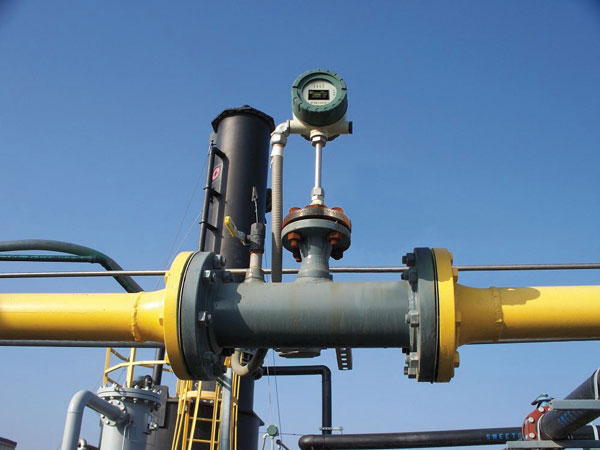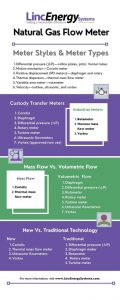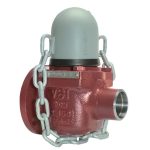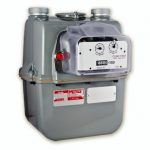4 Things to Consider Before Selecting a Gas Flow Meter Technology
There are four things to consider in natural gas meter selection when scoping out an industrial process or natural gas pipeline uses, including custody transfer applications.
Natural Gas Meter Section Guide
Between traditional and new flow meter options, selecting the right flow technology for an application is the first step to achieving accurate gas flow measurement. Unfortunately, this is one of the most overlooked steps when choosing a flow meter because it involves research and consideration. Consequently, many meters are chosen inappropriately and deliver unsatisfactory results.
| Traditional Gas Technologies | Newer Gas Technologies |
|
|
All meters have advantages as well as disadvantages. Because no meter technology is perfect, the meter buyer must consider each application to find the technology where the strengths outweigh the weaknesses to achieve accurate gas measurement. To approach your search to find the most inexpensive meter is usually shortsighted and often leads to a higher ownership cost.
To help with researching and considering your options, here are four areas to consider in your gas meter selection.
1. What is your gas flowmeter’s purpose or application?
Why do you need a gas flow meter? Do you need to measure the volume of a fuel gas? Is it for residential, commercial, or industrial use? Are you monitoring the flow of gas in an industrial process?
| Custody Transfer or Fiscal Meters |
|
Do you need to measure for custody transfer? Not all flow meters are approved for measuring gas for the transfer of ownership or custody transfer applications.
Do you want to measure mass flow or volumetric flow?
In the gas industry, it is common to specify mass flow by correcting or adjusting the volumetric flow at standard pressure and temperature conditions (STP) and designating it as SCFM (Standard Cubic Feet per Minute). To adjust the volumetric flow and express it as mass flow, pressure, and temperature devices are required in addition to the volumetric meter.
| Mass flow Meters |
|
Mass flow meters do not require additional equipment to determine the mass flow and express ACFM (Actual Cubic Feet per Minute).
Know your budget. Understand the meter, installation, and maintenance costs associated with your meter section. What is the meter’s life expectancy, and how do these expected expenses translate to the cost of ownership?
2. What gas do you need to measure or monitor?
What gas do you want to measure? Is it a single gas or a mixture? Does the gas composition vary, and is it clean or dirty? Is it pipeline gas, process gas, fuel gas, flare gas, digester gas, or something else?
What is the operating flow range of the gas, and what is the accuracy requirement? Every meter is engineered for a specific flow range (and pressure and temperature ranges). Some meters have a better turndown ratio (rangeability), meaning they can handle variations in flow ranges more effectively. Installing a meter outside the operating flow range will lead to inaccurate readings. What is more critical to your application, accuracy or repeatability?
What is the process pressure range of the gas?
What is the process temperature of the gas?
3. Where do you intend to install the gas meter?
Where will the meter be installed? Are there any environmental conditions that could impede the meter’s performance, such as electrical interference, heat, or cold? Are there government regulations that impact the location? Do you have a good straight run?
What is the pipe size? Alternatively, what is the duct size? What are the materials of the pipeline or duct? Could environmental conditions impact the pipeline and, therefore, the meter?
4. What do you need from your meter, both short-term and long-term?
 Do you need a flow meter totalizer? A totalizer will keep the running total of the gas flow that has passed within a specified time.
Do you need a flow meter totalizer? A totalizer will keep the running total of the gas flow that has passed within a specified time.
Will you need a local display on the meter? Alternatively, will you need an electronic signal output? Alternatively, both?
Understand the calibration needs of the meter. Every meter should come calibrated from the factory. Still, some meter styles require frequent calibration and may need to be removed from service and sent to the manufacturer or NIST-certified calibration facility. Some meters offer calibration verification features that enable the user to check if the meter is still calibrated. Whether they do or do not, the user must follow the manufacturer’s re-calibration guidelines.
Can the meter be upgraded? With the onset of advanced electronics, PLCs, and SCADA systems, many manufacturers offer upgrades to ensure the meter works optimally, accurately, and efficiently.
Know the meter’s maintenance requirements. Every instrument requires periodic maintenance to ensure that it is operating correctly. While you may think a meter with no moving parts requires less maintenance, ultrasonic or electromagnetic flow meters likely need their electronics inspected periodically. Be prepared to design your maintenance schedule based on the manufacturer’s needs.
The informed and educated meter buyer will have more success in achieving accurate measurements in their applications.
If we can assist you in your gas meter selection, once you have thought about these four areas, contact us at (303) 697-6701.



